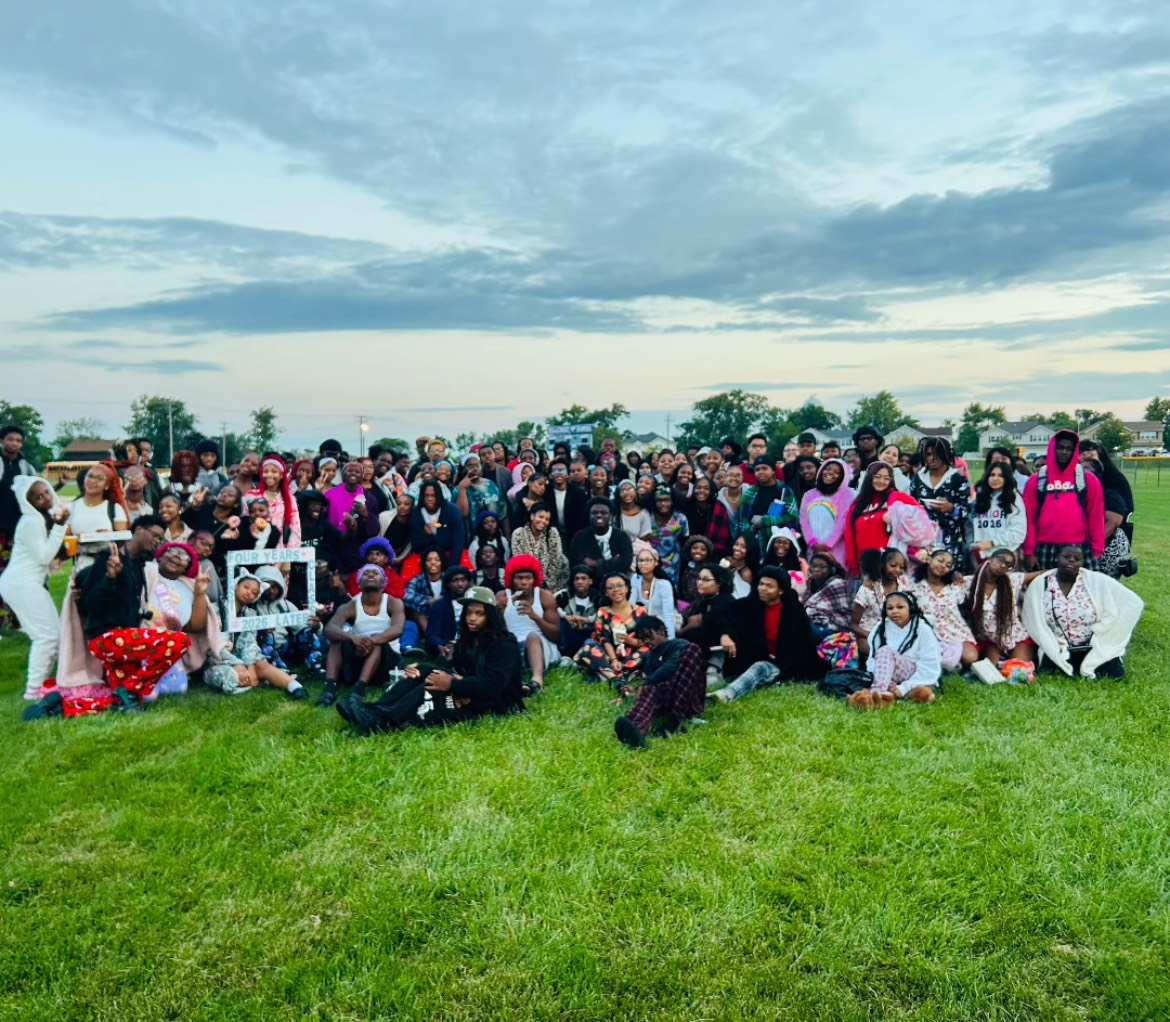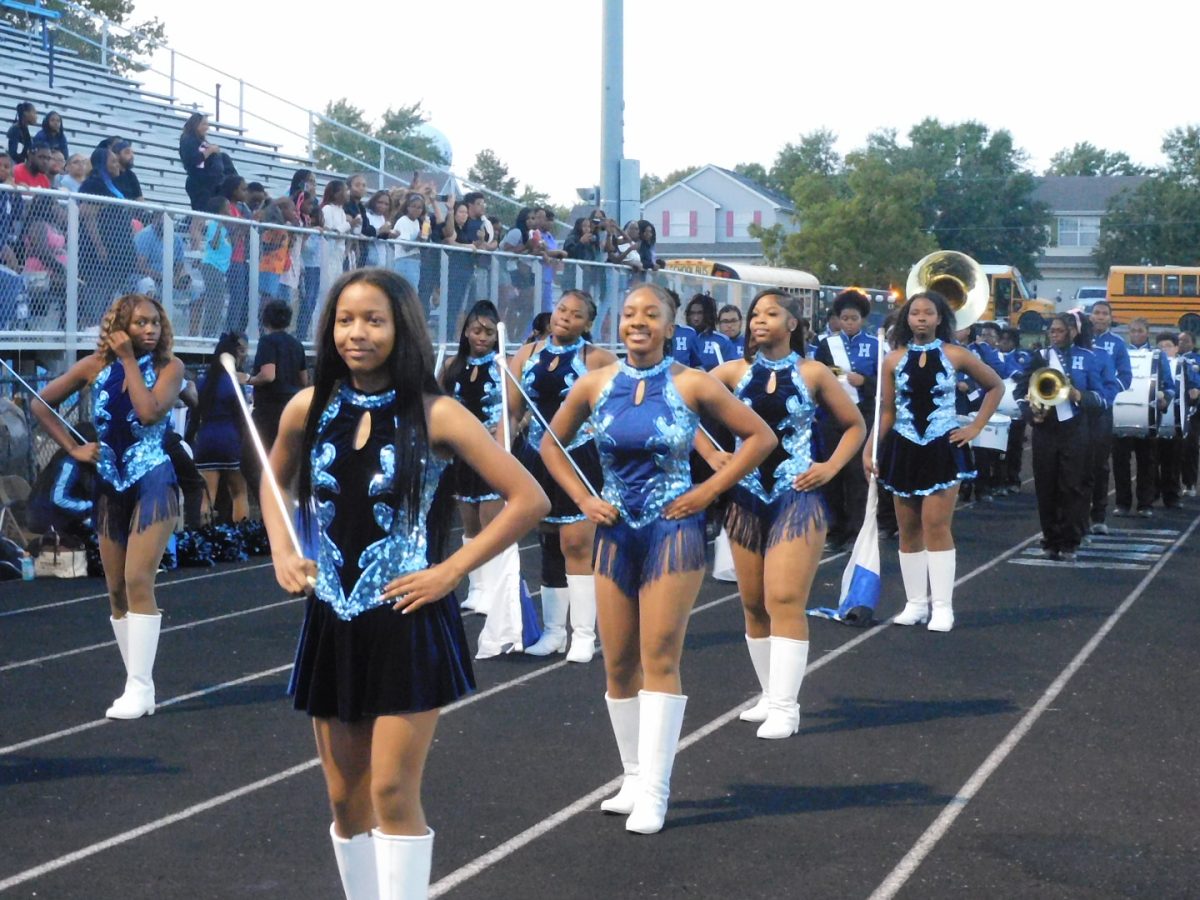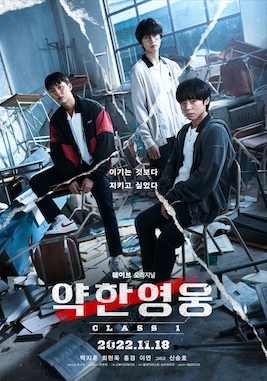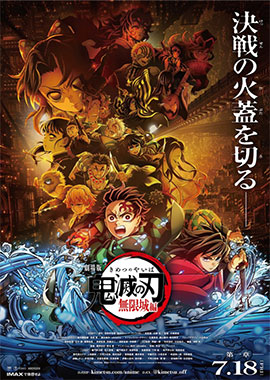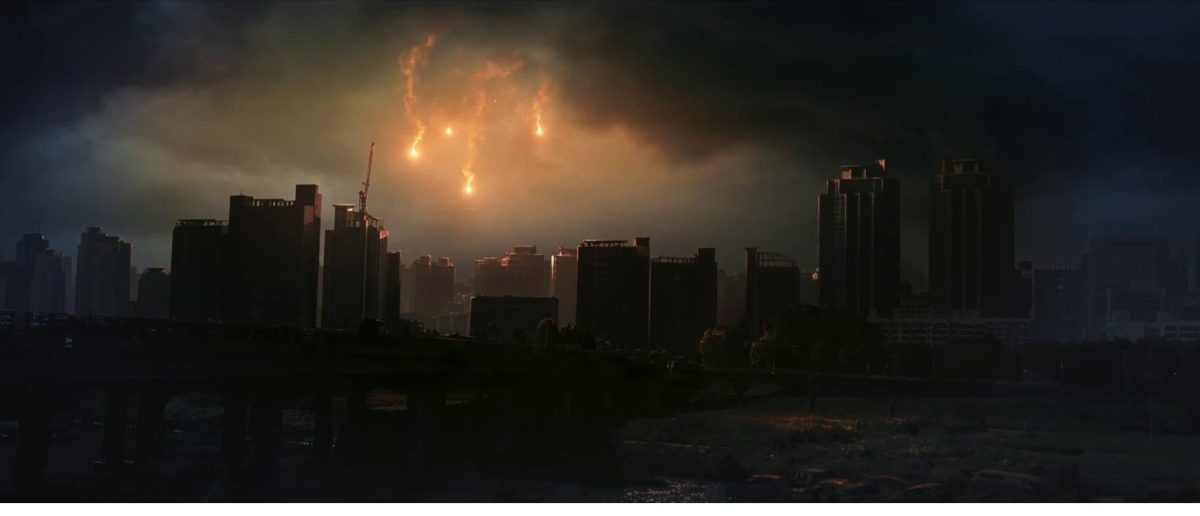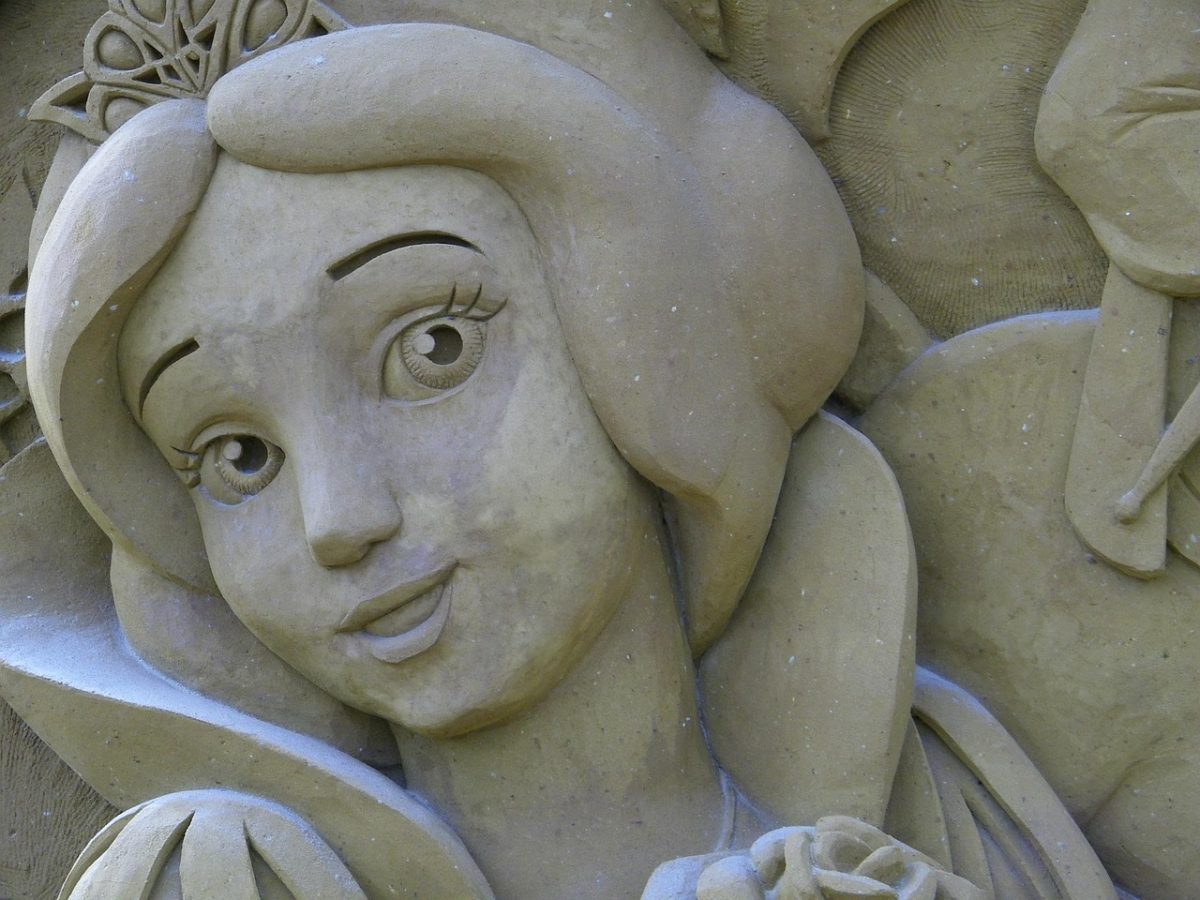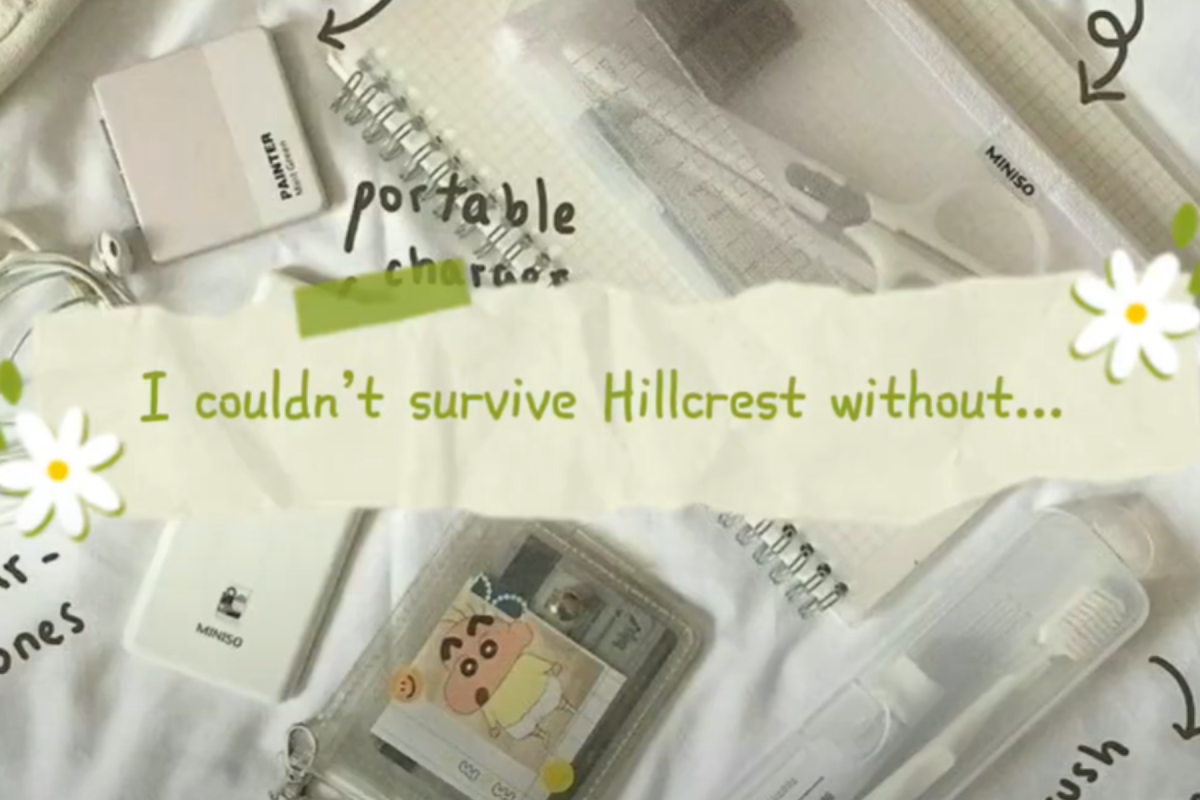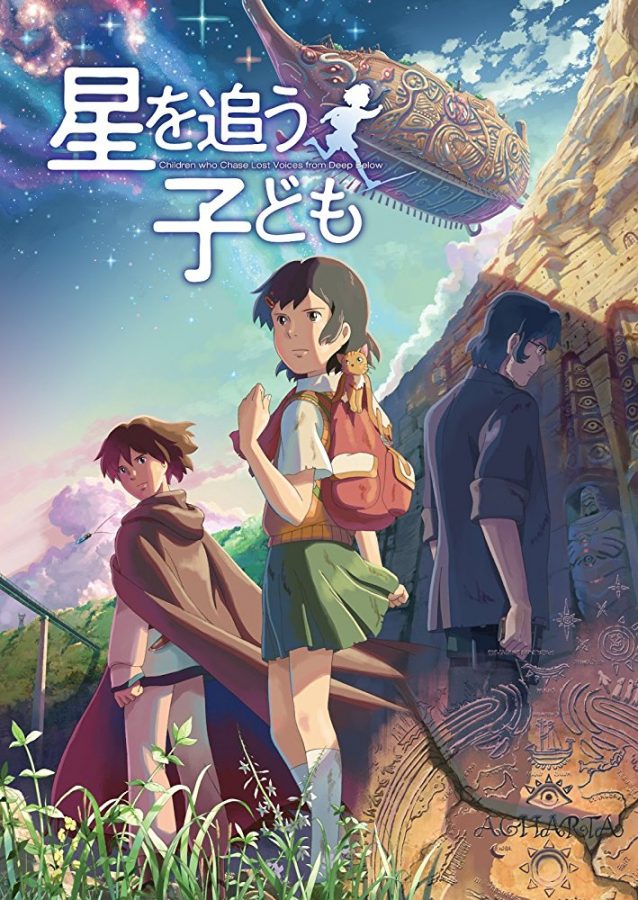Children Who Chase Lost Voices: Film Review
*Contains some spoiler*
October 8, 2017
The movie that will be reviewed today is Hoshi wo ou kodomo, or in English, Children Who Chase Lost Voices. It is a film directed by Makoto Shinkai (known for well-received movies like Your Name) about a young girl and her journey into the land of the dead. I have watched this movie twice now, once during a sleepless night, and once during a free afternoon in an attempt to fully understand it because of that, I feel like I have the authority to say that this movie wasn’t bad. However, it wasn’t all that good either. This review will go into detail about my opinions on the visuals, audio, and overall theme of this movie.
This film’s animation style is what turned me onto it in the first place. Before I even knew who it was by, it struck me as very studio ghibli-esque with its character design and scene composition. Though, when I saw the water physics and the lens flares, I realized that this was another studio’s production entirely (my initial assumption was correct in a way, since Shinkai was known to be influenced by Miyazaki). So, my expectations were dropped a bit, as this wasn’t a movie made by the studio of my childhood, but I was still optimistic about what this studio could produce, and how beautiful this movie could be.
Let’s just say that I was not disappointed.
With all animated movies, good visuals are crucial, and Children Who Chase Lost Voices was very successful in that department. The backgrounds were created with the feeling of an oil painting. The swayed and burst with colors that brought me deeper and deeper into the world, and the designs of the guardian spirits, called Quetzalcoatl, are also very diverse and well designed. As their name suggests, the artists on this project seemed to take inspiration from ancient Aztec and Mayan civilizations when designing the world of Agartha.
Let’s move on to the soundtrack. For more artsy movies like this one, you need good backing compositions in order for the aesthetics of the movie to truly hit home. This movie was fairly quiet for the most part, but the music that it did use was fit very well with the scenes of action and adventure. I do wish they had more of a simple melody backing the simpler scenes because the feelings of dead air felt kind of lacking to me. Besides that, the music used in this movie was fairly enjoyable and added to the overall feel of scenes.
The plot of Children Who Chase Lost Voices was decently put together though it had several open-ended sections and plot holes; all of which culminated in my overall dissatisfaction with the movie. This section will have spoilers, so if you want to experience this movie for yourself, now would be the time to stop reading, or to skip to the end for my review.
I would have loved this movie if it weren’t for two things: one of which was the sheer amount of loose ends. This film, like many other foreign works leaves a lot of questions unanswered in order to keep the audience thinking. This is a practice that many good works are able to pull off and still leave the audience satisfied. Children Who Chase Lost Voices, however, did not have that ability. Instead you, as the audience, are just left with irritating plot points that don’t lead anywhere.
For example, during the movie, it is constantly hinted that Asuna’s father is Agarthan by way of the fact that she owns a “clavis,” is hunted by race known as the “Izoku” who seek to devour those with mixed blood, and because Agarthans are in some way spiritually aware of each other. So, does this lead into Asuna discovering anything about her father in any way? Not at all. Let’s also not forget how Asuna’s mother was apparently fine with her leaving and disappearing for days right after a boy’s dead body was found in the river less than 24 hours prior.
My second gripe has to deal how this movies theme was presented to the audience. Throughout the story, several characters tell Asuna how important it was for her to stay alive. They also stressed the importance of the letting go of the dead and moving forward. When the story reaches its climax and brings this point home, it is so bland and lackluster that it takes so much away from my enjoyment of the film.
The movie reaches its highest point at the Gate of Life and Death, where Morisaki has already wished for his wife to return to him, but a sacrifice is required. When Asuna comes down in an attempt to rescue him, along with Shin, he offers her body up to the gatekeeper along with one of his eyes. Shin, who has come to care for Asuna during their journey, saves her life by shattering the clavis and freeing her soul, shouting that the living are more important than the dead. Then, all three make their way back to the entrance to Agartha like good friends, and send Asuna on her way. In the end, no real conflict exists whatsoever.
There were so many ways that this movie could have concluded itself, but to end it without any tension is just bad storytelling
To conclude, Children Who Chase Lost Voices had some very good points cinematography-wise, but its plot was very lacking.
Overall, I would give this film a 6/10, slightly above average.


